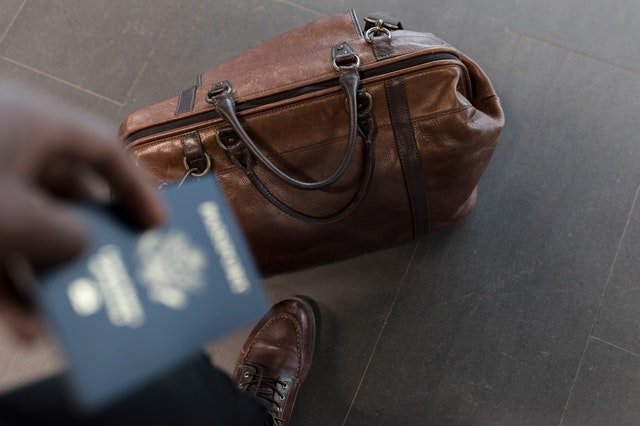How to Adapt in a New Country Faster with 3 Simple Actions
Sitting here on my desk while I complete nearly a decade living abroad, I wondered what lessons I wish I knew at the beginning of my journey that would make immigrant adaptation (meaning my own adaptation to life in a new country) much faster.
Short answer: I realize that we (or anyone else) can adapt much faster to a new country with 3 simple steps:
- Allowing yourself minor concessions while adopting the local etiquette.
- Watching how locals behave in their ethos.
- Learning to think in the local language (yes, to think, not only to talk).
This is the short answer, but if it is still a mystery for you, I will explain it in the next paragraphs.

What Is It like Moving to Another Country
At the beginning of my book, I wrote about universal instructions, not restricted to one single area of the globe. However, some rules may apply in more distinct ways than others depending on what is the difference between your current and previous country. This is especially true for what I will tell you in this article: the concerns of immigrant adaptation.
If you, dear reader, moved out from Canada to the USA or from Edinburgh in Scotland to England, maybe you will see my next paragraphs and think:
Oh, Bollocks! My adjustment to the local way of life was so smooth, why such a drama?
Well, the adaptation to my first move, from Brazil to Chile, was also not difficult. The few obstacles were only internal (missing family, friends, and all other things from home – in this article I wrote about how to overcome homesickness) because the externals like language or customs were not very different from what I had before. That is because Chileans are not that different from Southeastern-Brazilians, as much as residents from Toronto are not that different from New Yorkers.
Check also: 9 must-read books about moving abroad.
Why is it hard for immigrants to adapt?
There are three major reasons that may hinder immigrant adaptation.
- Language barriers
- Educational discrepancies
- The family background
The first barrier for immigrants is language. When they travel to a foreign country, they must learn a new language in order to communicate with the locals. They are unable to find work or purchase goods if they do not speak the local language. Worse, when they require assistance, they will feel helpless and perplexed. Sometimes, you won’t be able to do anything if you don’t speak the local language.
Another challenge for immigrant adaptation is the educational discrepancy. Many immigrants are from non-developed countries and their education is far behind that of developed countries. As a result, they have no idea what the local government requires or how to get jobs in the new country.
Lastly, in some cases, family ties are also a significant deterrent to immigrant adaptation. Many immigrants come from countries where families are extremely close. This can cause a slew of issues when they travel to countries with more individualistic cultures.
In some Asian countries, for example, three generations of the same family may live under the same roof. When children reach adulthood, they are expected to care for their elderly parents until they die.
And this opens the topic for local customs…
Local customs
Adapt to the local customs, but allow yourself minor concessions.
On the other hand, if you are moving to a country with a distinctive courtesy code, formalities, and behavior conventions, you may find yourself lost. Without even noticing, you might gain a poor reputation or enter a fight. My whole life I crossed my legs when sitting for longer times. For me, it was just an insignificant gesture to feel comfortable. I thought that until I move to the Middle East.
On one of my first days in Doha, while I was in the HR department waiting for some bureaucratic procedure, I crossed my right leg over the left, leaving it parallel to the floor and with the sole of my shoe visible to everyone on my left. After a few seconds, a man in his 50s, dressing in a typical thawb, told me something in Arabic to me in an unpleasant tone.
I realized I made something wrong and later understood that showing the sole of your shoes to someone there is an insult. So, if you are reading this, middle-aged stranger in a white thawb, I am sorry for showing you my shoe’s sole.
There are two great ways to fire up your understanding of local etiquette. The first one is also the easiest:, and it doesn’t involve taking etiquette classes.
Local etiquette classes? You don’t need them! Just watch other people!
Sometimes the biggest differences are the smallest. It took me a couple of months before I realized that, rather than just placing a plateful of cookies on the table in front of visitors when we sat down to drink tea, I had to explicitly offer the cookies to them. They wouldn’t help themselves to cookies without being offered.
I thought they just didn’t want any. And I had to offer them a second cup of tea, rather than expecting them to take it. I sat there, eating cookies and refilling my own tea, and didn’t realize how incredibly impolite I was being! So watch their behavior carefully: notice how they shake hands, how they sit, how they handle food, and so on.
Maybe Rachel could see in the guest’s faces that they were not serving themselves because she was not doing what the local etiquette tells in the Netherlands (explicitly offering it to the guests). When you live outside your country, it can be challenging to interpret facial expressions.
The research of the American psychologists Hillary Anger Elfenbein & Nalini Ambady concluded that we recognize facial emotions better when observing people similar to us in terms of nationality and ethnic group. Therefore, if you are in an unfamiliar environment, with conspicuous differences from your homeland, maybe observing people will not tell much to you. Therefore, as Rachel Heller advises, just ask people what are the local rules of politeness.
Learning the language while adapting to life abroad

The second great way to assimilate the local etiquette is more demanding, but (at least for me), very rewarding:
Learn the local language, or at least try.
Learning the idiom of your new country will open a whole new world to you. Not only you will be able to say things like Thank you or Please when shopping at the grocery store or ordering in a café, but you will take the nuances that shape people’s moods in their daily activities. Understanding the local jokes and insults will give you a great idea of what is funny and what is outrageous in your new home.
The cognitive scientist Lera Boroditsky in her research affirmed that language shapes the way we think. Therefore, by learning the local language, you will be able to think like a local, and that escalates your chances of success (or at least survival) in your new environment. Which incentive can be better than this? As the Austrian philosopher, Ludwig Wittgenstein wrote:
The limits of my language mean the limits of my world
There are always plenty of concessions you can allow yourself without being rude. I am used to eating pizza with a fork and knife, something common in my region since the pizza dough there is quite thin, so grabbing it can make a mess.
Neither in Qatar nor Poland do people eat in that way, but still, all the time when I go to a pizzeria I ask for a fork and a knife. Some people look at me and some probably think that this is weird. However, the comfort of eating pizza in my way outweighs any discomfort from people looking at me and asking themselves “why this guy is doing this?”. It is not impolite, but just weird. And it is not rude to be slightly weird.
The more you adjust to the local customs…
…the more people will allow you to be peculiar.

It is almost like there is an expatriate behavioral bank account (there are six expatriate types, discover yours here).
If you adopt a posture of inflexibility, always answering invitations to traditional dishes with “No, I am not used to that”, or replying to questions about local matters with “I am not interested in it”, the balance of your behavioral bank account with people around will be empty. When that happens, even minor signals, like your clothes, may send a message you don’t want to integrate, and people will just give up.
However, if your colleagues or spouse’s family see that you are trying to learn the basics of their language, appreciating their dishes and drinks, and even commenting on the local sports news, they will not mind your eccentricities.
When I am watching TV, sometimes I like to sit in a lotus position (maybe I am revealing too much in this book, sorry). My wife told me it was weird, but since I was watching their favorite sport and trying to talk in their language, they just were ok with it and thought it was some typical way for Brazilians to sit (it is not).
That is part of the beauty of being a foreigner: others often will think that whatever oddness you have is just a typical thing of your country, and you will not look so odd.
So aim to adjust to the local etiquette, but allow yourself minor concessions.
If you are planning to live abroad, it is a good time to check the things to buy before moving out, but if you already live abroad, I recommend this simple but life-changing advice for expatriates.
What is the difference between adaptation and acculturation?
Adaptation and acculturation are two processes that immigrants go through as a result of living in another culture. The distinction is in what each process entails. The changes that immigrants make in order to survive in their new country are referred to as adaptation. Acculturation refers to the changes that occur when immigrants are exposed to a dominant culture through the adoption of its language, customs, behaviors, and so on.
An example of acculturation would be Polish immigrants in the USA when they slowly forget their traditional recipes, etiquette, language, and so on.
An example of adaptation would be Polish immigrants in the USA adopting the American work ethic to thrive in the business environment.
Conclusion: How to Adapt to a New Country Faster
With three simple actions, you can speed your immigrant adaptation to a new country:
- Permitting to yourself minor concessions while adhering to the customs and traditions of the region.
- Observing how the locals conduct themselves in accordance with their ethos.
- Developing the ability to think in the native language (yes, to think, not only to talk).
If you enjoyed this article about immigrant adaptation, check these below:
4 Tips for Moving Out and Living on Your Own Next Year
Two Fine Benefits of Living In Another Country (Hint: They Will Laugh at You)
Tips and Crucial Advice for Anyone Moving from a Warm Country to Cold Europe
Levi Borba is the CEO of expatriateconsultancy.com and a best-selling author. You can check his books here and some of his articles here. This article was inspired by the content of his book, Moving Out, Working Abroad and Keeping Your Sanity: 11 secrets to make your expat life better than you imagine.




